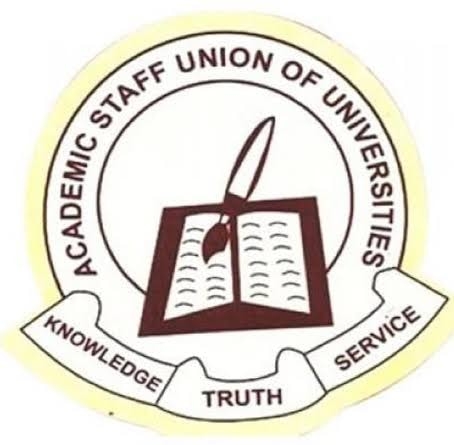The Academic Staff Union of Universities (ASUU) has issued a stern warning to the Federal Government over its continued failure to honour longstanding agreements and resolve persistent issues within Nigeria’s university system, hinting at a possible industrial action.
Speaking at a press conference held at the University of Jos on Thursday, ASUU National President, Prof. Christopher Piwuna, expressed deep dissatisfaction with the government’s approach, accusing it of destroying the union’s trust and refusing to rebuild it.
Piwuna lamented that after over two years of patience, the union had seen no meaningful progress, accusing the government of using delay tactics in renegotiating the 2009 ASUU-FGN Agreement, settling salary arrears, and revitalising the country’s public universities.
The union further criticised the government’s inaction on the Alhaji Yayale Ahmed-led committee report submitted in February 2025. Despite its critical recommendations on collective bargaining and the 2009 agreement, ASUU said the report had been shelved, showing a lack of commitment to resolving issues affecting the sector.
“This is clearly troubling for our members. The government’s failure to act is a direct assault on the Collective Bargaining Principle, which Nigeria is bound to under ILO conventions,” Piwuna said.
The ASUU President emphasized that the renegotiated agreement touches on vital areas including staff welfare, university autonomy, academic freedom, funding, and reforms in agencies like JAMB and NUC. Although the government has scheduled a follow-up meeting for August 28, Piwuna warned that time was fast running out.
He also raised concerns over the proposed Tertiary Institutions Staff Support Fund (TISSF), which intends to offer loans to academic staff. The union described the initiative as a “poison chalice” and rejected it outright, stating that what lecturers need is a reviewed wage structure, not loans that would further deepen their financial burden.
“What we need now is the implementation of our renegotiated agreement to restore our purchasing power. It’s insulting to suggest we take loans to meet basic family and healthcare needs. This loan plan will only enslave our members and cripple staff cooperatives,” Piwuna declared.
He added that the government still owes lecturers three and a half months’ salary, insisting that the funds earmarked for the loan scheme should be used to clear these debts.
ASUU also took aim at the proliferation of universities across Nigeria, describing it as a move driven by political motives rather than educational needs. With 339 universities across the country—72 federal, 108 state-owned, and 159 private—the union argued that many of these institutions lack adequate infrastructure and manpower.
The union called on the government to extend its existing moratorium on the establishment of new public universities to cover private ones, warning that uncontrolled expansion would further erode academic standards and global rankings.
Raising concerns about the plight of retired academic staff under the Contributory Pension Scheme (CPS), ASUU noted that many former lecturers are struggling with as little as ₦150,000 per month in a challenging economy, even as they battle chronic illnesses and care for dependents.
“This is a gross injustice. The government must urgently revisit the conditions of our retired members who served this country with dedication,” the union said.
Looking ahead, ASUU’s National Executive Council (NEC), which convened recently at Usmanu Danfodiyo University, Sokoto, resolved to wait for the outcome of the government’s August 28 meeting before taking decisive action.
However, the union announced plans to stage sensitisation rallies on campuses across the country next week as a strong signal of its readiness to act if the government remains unresponsive.
“We cannot keep running on empty tanks. If the government fails to respond decisively, we will be forced to act to defend the integrity of public university education,” Piwuna warned.
Reaffirming its demands which include a full renegotiation of the 2009 Agreement, adequate university funding, improved staff welfare, and an end to the intimidation of union members ASUU made it clear that the onus now lies with the Federal Government.
“We’ve exhausted all peaceful avenues to resolve these issues. If a strike eventually becomes inevitable, the Nigerian public should know that the Federal Government pushed us to this point,” Piwuna concluded.





